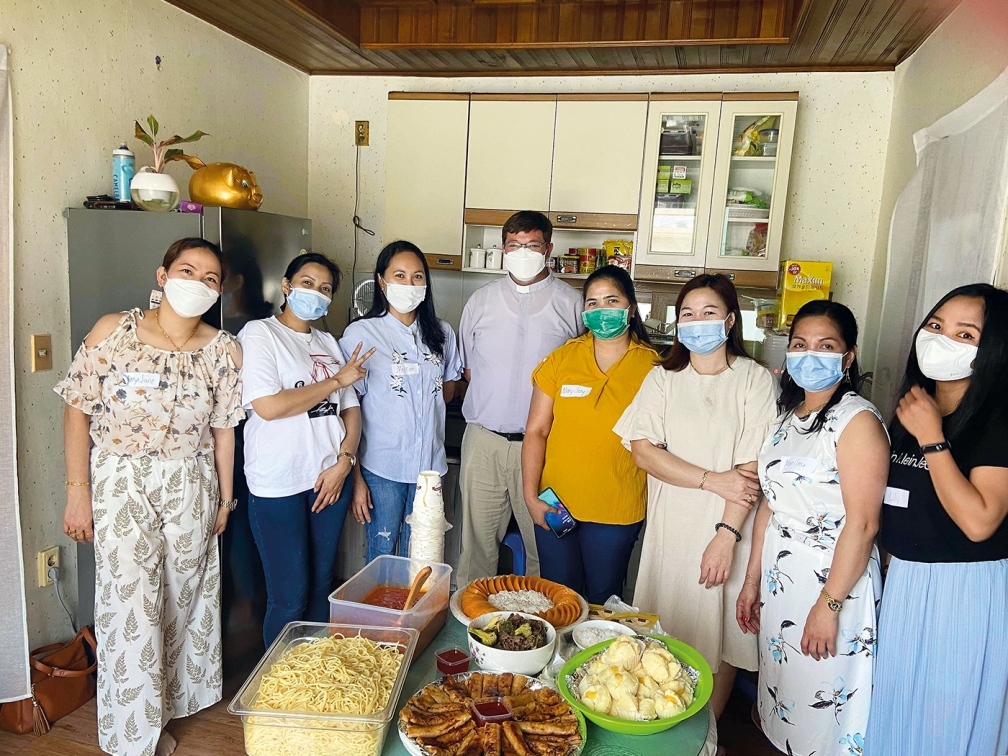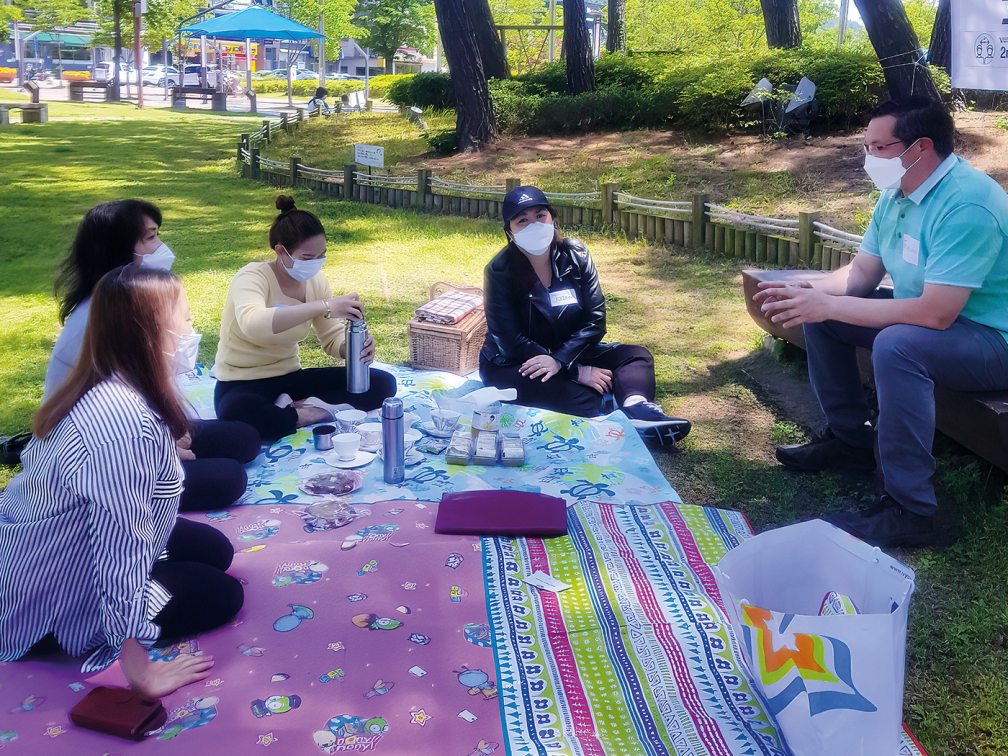Every year thousands of people around the globe are forced to leave behind their family, friends, accommodation and dreams in order to try and find a better life somewhere else in the world. I am a Columban priest working with migrants in Suncheon, Korea.
In April 2019, I was working with young people at the university in Mokpo city, when I received a phone call from a number I did not know. I thought it might be a call centre offering me something I didn’t need, so I did not answer. However, the phone number called again about an hour later. I did not answer for a second time. But then the number called a third time. I decided to answer and intended to tell the caller I was not interested in what they were selling – but I got a big surprise.
The caller introduced himself as a priest from Gwangju diocese called Fr. Anselmo. He was working with migrants. He asked me if I would be willing to help him in this parish on Sundays because he was struggling to communicate with this community of migrants. Though he could read English, his parishioners could not understand him when he spoke.

I told him I would help him out. It was the start of something new for me. The following Sunday I went along to the Catholic Migrant Centre to celebrate Mass in English. I was shocked by the number of different nationalities who gathered for Mass. This was how I started in the migrant ministry. I really embraced this new calling and asked the Columbans to allow me to be appointed to this ministry in Suncheon. No Columban priest had served here for 60 years.
In the beginning, before the Covid-19 pandemic, I visited people that had come to Korea from Vietnam and helped them with challenges like having their medical needs seen to. I was doing this with a Korean Sister. In one case, we helped a Vietnamese woman who was expecting a child, to get the medical attention she needed. Migrants are often very poor in Korea. Their working conditions and lack of rights, leave them vulnerable. If they end up in hospital, they can lose their job because their employer does not want any problems with the migration office.
Part of my ministry is celebrating Mass and preparing the children of migrants for the sacraments. Most of the migrants come from the Philippines, then Vietnam and East Timor. A few are from the United States, Britain, Ireland, Eastern Europe and South Africa.
Sadly, due to Covid-19, my ministry was interrupted in a way I could never have anticipated and so I had to rethink how I could reach out to this diverse community. I was not able to go to the hospital anymore, and I was not able to celebrate public Masses. However, at a certain point it became possible to meet in small groups to share biblical reflections and to do house Masses or blessings and to listen to people’s problems and share their worries. I have come to the realisation that our lifestyles and way of life are not going to be the same again in the future and we, as a Church, need to understand that and go with the times. It is true that our faith is based on the Eucharist and the real presence of Christ.
In order to make this more tangible when churches are closed to public Masses, we have to seek out that presence. I believe the Spirit is pushing us to go to the peripheries, not only the physical peripheries but also the existential ones. We must follow the example of Christ who spent most of his time on the peripheries.
I believe that by being with people, sharing their food, by listening and sharing God´s Gospel with them, we are celebrating the presence of Jesus in people’s daily lives. So, when we celebrate the Eucharist in the Church, Jesus is not only present in the sacrament and the Church, but also in life, love, compassion, mercy, understanding and patience.
“The encounter with migrants and refugees of other denominations and religions represents a fertile ground for the growth of open and enriching ecumenical and interreligious dialogue.”


